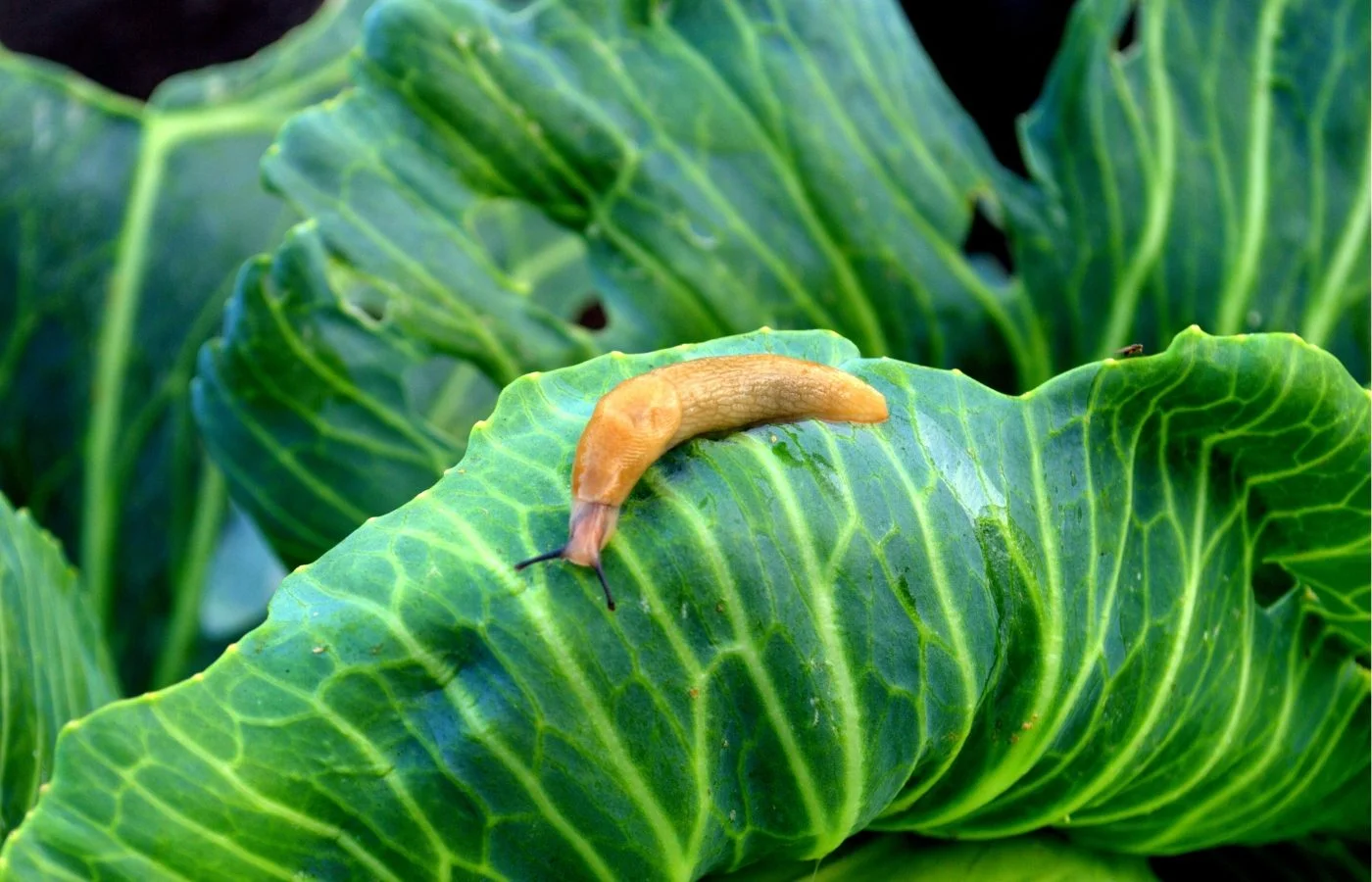Slugs can cause considerable damage in our gardens, devouring our precious plantings. Fortunately, nature offers us ecological solutions to combat these voracious gastropods. Let’s find out more about slug control plants, natural allies that effectively protect our crops and beautify our green spaces at the same time.
The secret of slug repellent plants
Slug-repellent plants work in different ways to repel these unwelcome visitors. Some produce odorous substances that slugs find unpleasant, while others have textured leaves or stems that deter them from approaching. These natural defenses create a protective barrier around your sensitive crops.
By strategically integrating these plants into your garden, you create a slug-hostile environment without resorting to harmful chemicals. This ecological approach promotes biodiversity and the natural balance of your green space. See also our article on repelling snails.
- Ivy: a plant bulwark against slugs
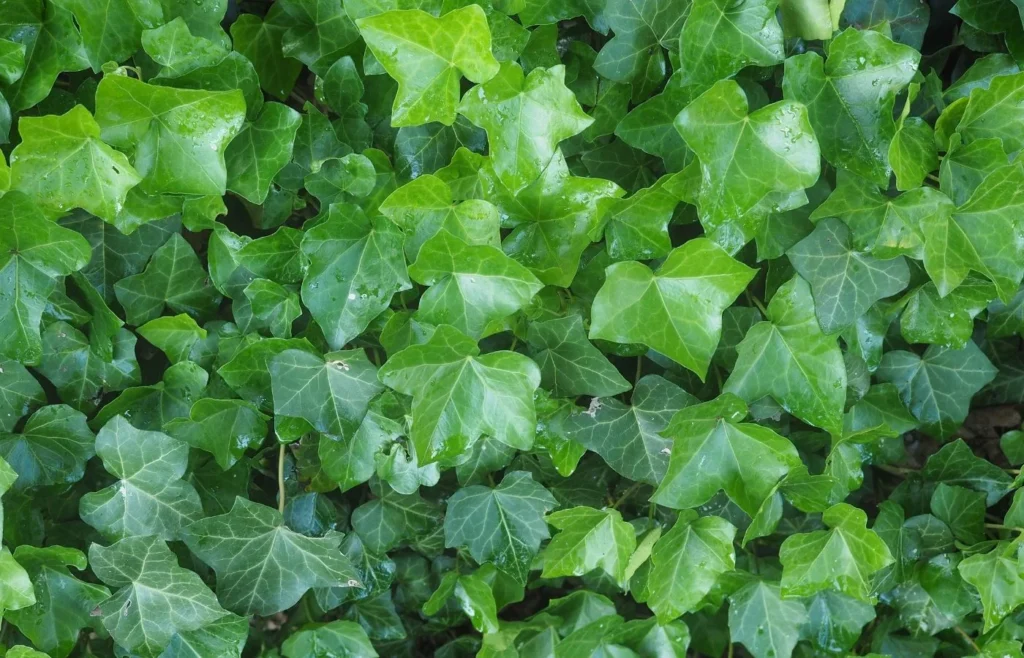
Ivy is an excellent ally in the fight against slugs. Its tough leaves and climbing stems form a natural barrier that these gastropods are reluctant to cross. By planting ivy around your sensitive areas, you create an effective and aesthetic protection.
This perennial plant has the advantage of remaining green all year round, providing permanent defense against slugs. Ivy also attracts many beneficial insects, contributing to the ecological balance of your garden.
2. Borage: a slug-proof blue beauty
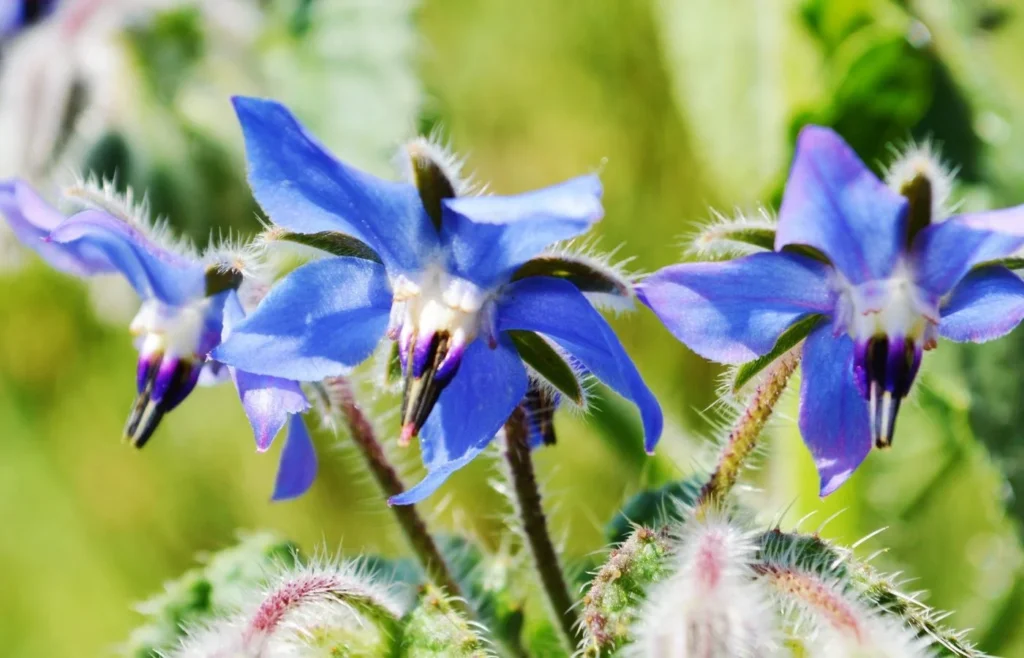
Borage, with its pretty blue star-shaped flowers, is not just decorative. This plant has leaves and stems covered with stiff hairs that effectively repel slugs. Its distinctive scent also acts as a natural repellent for these greedy molluscs.
In addition to its anti-slug properties, borage attracts pollinators and can be used in cooking or as a phytotherapy. It’s a versatile plant that deserves a place of honour in your garden.
- Comfrey: a natural barrier against gastropods
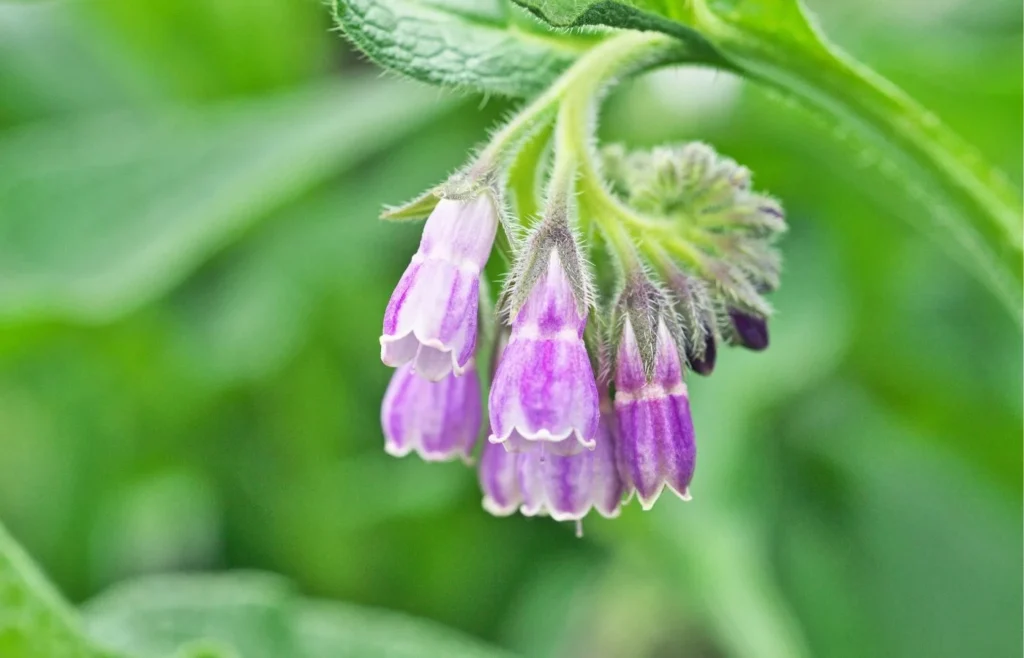
Comfrey is renowned for its many benefits in the garden, not least its ability to repel slugs. Its large, rough leaves and sturdy stems create a physical obstacle that slugs prefer to avoid. What’s more, comfrey produces compounds that displease these pests.
This perennial plant is also appreciated for its fertilizing properties. Used as a slurry or mulch, it naturally enriches the soil, encouraging the growth of your other crops.
- Tansy: the aromatic secret weapon against slugs
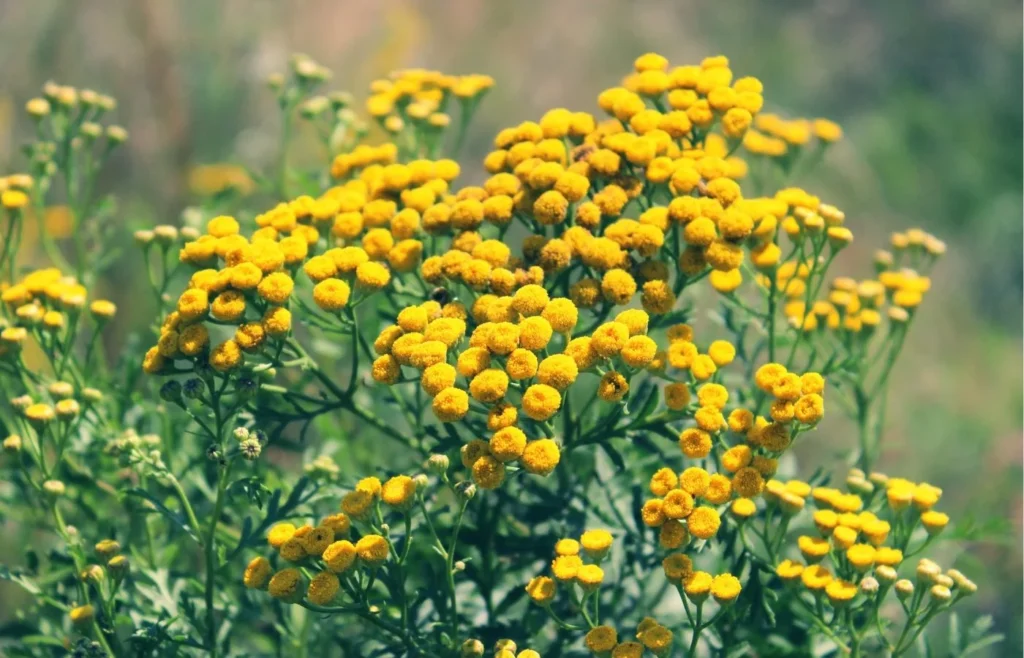
Tansy is distinguished by its finely cut foliage and button-shaped yellow flowers. This aromatic plant gives off a strong scent that effectively repels slugs and other insect pests. Its repellent action is due to the presence of terpene compounds in its leaves and flowers.
In addition to protecting your garden, tansy can be used in small quantities to flavor certain dishes, or infused for its medicinal properties. It’s a versatile plant that deserves a place in your anti-slug arsenal.
- Stachys: a woolly remedy against crawling invaders
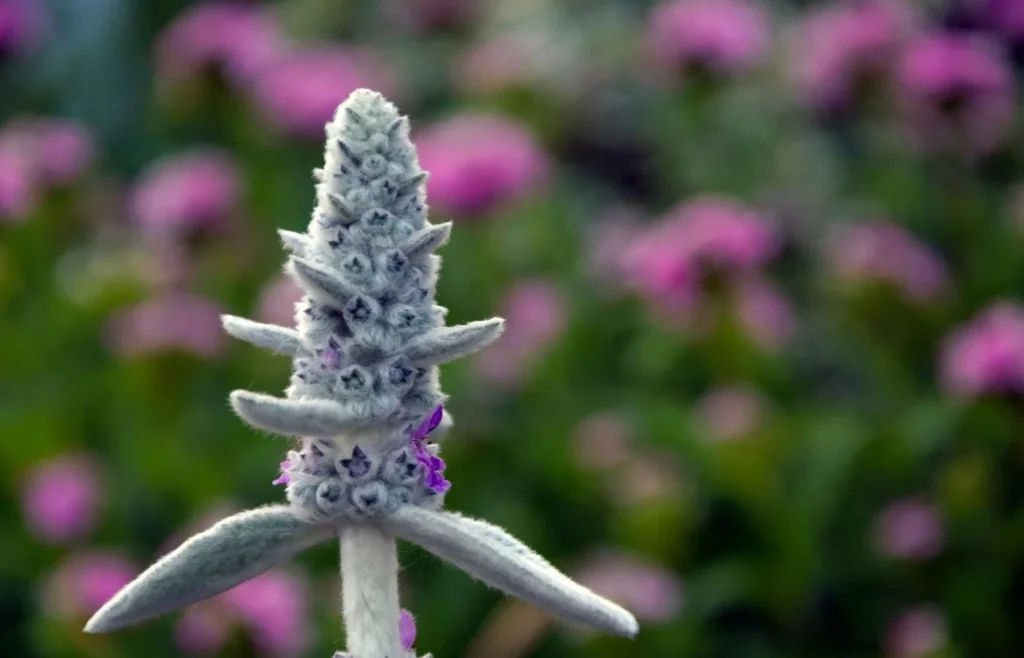
Stachys, also known as lamb’s ear, is remarkable for its soft, downy foliage. This particular texture is very unpleasant for slugs, who avoid crawling on these woolly leaves. At the edge of your plantings, stachys forms a natural, aesthetic barrier.
This perennial is easy to grow and resists drought well. It adds a touch of softness and originality to your beds, while providing effective protection against slugs.
- The fern: elegant, effective protection
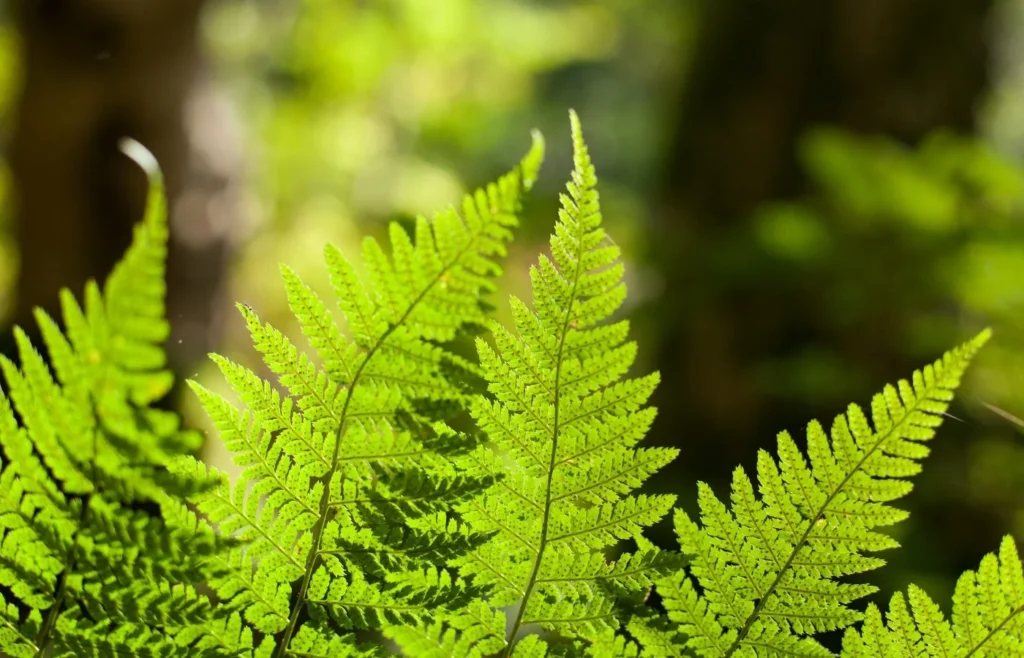
Ferns, with their delicate fronds and graceful habit, are more than just decorative plants. Their leaves contain substances that slugs find particularly repellent. By planting ferns around your sensitive crops, you create a natural buffer zone.
These shade plants add a touch of lush greenery to your garden while helping to combat slugs. They fit perfectly into shady, damp corners, where slugs tend to proliferate.

